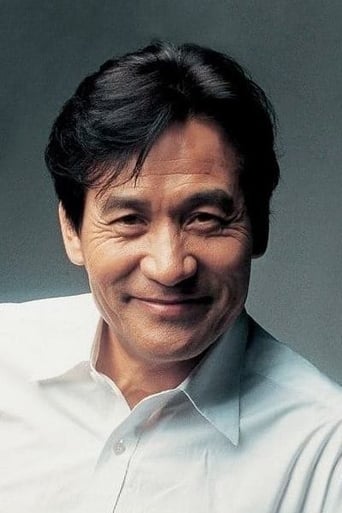ThiefHott
Too much of everything
Nessieldwi
Very interesting film. Was caught on the premise when seeing the trailer but unsure as to what the outcome would be for the showing. As it turns out, it was a very good film.
Verity Robins
Great movie. Not sure what people expected but I found it highly entertaining.
Kaydan Christian
A terrific literary drama and character piece that shows how the process of creating art can be seen differently by those doing it and those looking at it from the outside.
refresh daemon
This late nineties Corean film is based on the experiences of the film's director, although the events of the film may not be directly translated from his experiences. The film centers on a family in a village during the Corean war, near a US military base. It displays the poverty that Coreans suffered from during the war, the high prejudice against refugees from the North and the negative and positive effects of having the US presence.It doesn't pull its punches when it comes to story. Impoverished widowed Corean women resort to selling their bodies to US soldiers for money to feed their families. Some Coreans take advantage of the US presence to gain employment. People die at each others' and at US military hands.The directing style however is very restrained, shooting primarily from a fixed camera at a distance. Therefore, it creates a distance for the viewer, which may make it immediately difficult to connect to the story. But I don't think it's a terrible technique, because, in some ways, the technique renders us helpless as viewers and helps further the case for the film to be in a the past and observational, rather than intimate. Yet, because of the nature of the story, it's still easy to become connected with the characters, especially the protagonist, a young boy.All in all, I'd say this is a solid effort of an art film. It's certainly not a happy or uplifting film, but a brooding meditation on the crimes of the past, both from within and from outside the Corean people. And like a lot of Corean works, the theme of continuing on despite suffering is present as well.It's good. 8/10.
Martin-117
An interesting study of the effect of foreign occupation of a small country by a militarily and economically more powerful nation, in this case the de-facto occupation of South Korea by the US during the Korean war. In particular the observation of small details, and in themselves, perhaps insignificant incidents, are brought together with more significant events to show how almost every aspect of life, down to the most intimate and personal details, are affected by the unequal power relationship between the occupier and the subjugated people.Except for the opening scene, almost all of the violence and atrocities are off screen, one observes, for example, the expressions on the faces of children turning from inquisitive curiosity to nauseous horror, but not the act that they witness itself. The war, as such, is never shown, but only referred to in title screens reporting some of the most significant events. We see a funeral, but not the killing. To me, this is a very interesting (and in a time where most films rub your nose in graphic and excessive violence, also unusual) technique, because it allows the film to make its point without having to depict what it is actually condemning.Admittedly this technique, of only indirectly, or not at all, showing the cardinal incidents, and the overall tendency to view events from a distance (where you can't really recognize characters) made the film very difficult to follow. However once one constructs the sequence of events from the consequences that are shown, the effect is all the more compelling.
Pro Jury
English name: Spring in My Hometown.Set in Korea in the early 1950's, family members find tragedy when a small village boy witnesses his mother having sex with an American soldier.Korean movies are rarely seen in the USA. I gave this film every chance, however with few exceptions most every shot is overly distant from the actors. The pacing becomes slower as the framing becomes wider.Kept away at a distance, it is nearly impossible for the viewer to care about the people in the movie.Spring in My Hometown is highly ranked. The shadowed subtitling was very easy to read. Check it out if you find it, but don't plan on being overly enthralled.
Stevie Cho
Korean War can be an out-of-date topic for most Koreans by now, especially for younger generations. The story of two boys during those hard years sounds quite familiar, even somewhat boring. However, when this story is portrayed in such a masterful way, it suddenly gets whole new aspects! Filmed at remote country villages, the movie shows stunning beauties of Korea's four different seasons. And only through this breath-taking scenery, the theme itself obtains its deepness. It's just unforgettable!

